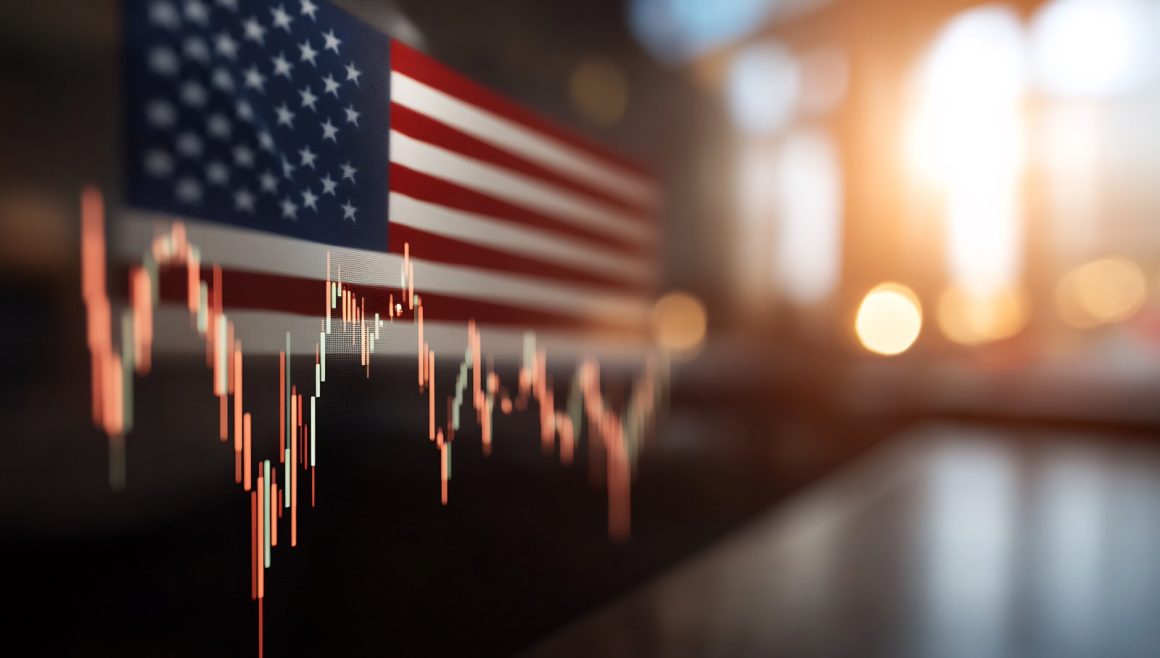With global headlines bouncing between trade tensions, inflation worries, and surprise economic data, it’s getting harder for investors to know what matters most. So, on the latest Inside Perspectives1 podcast, AGF’s leadership team—CEO and CIO Kevin McCreadie, Chief Trading Officer John Christofilos, and Head of Fixed Income Tom Nakamura—joined host David Pett to sort through the noise and focus on what’s actually moving markets.
From Golf Talk to Gut Checks
The conversation begins on a light note with some banter about golf and freak hailstorms, but it doesn't take long to get serious. McCreadie offers a fitting analogy for life in the markets: “This is a business where even if you hit it six to ten times, you're really, really good. But that's the expectation.” Translation? Success in this business means being right more often than wrong—barely—and the margin for error is razor-thin.
Markets Bounce, But Are They Stable?
Stocks have been on a tear lately, with the S&P 500 jumping 7% in a month. But McCreadie isn’t sold on the idea that we’re in the clear: “We haven’t really cleared any hurdles… We've just moved them down the road.” He points to a familiar pattern—investors rushing back into the “Magnificent Seven” tech giants—suggesting comfort over conviction is driving the rebound.
Christofilos finds the speed of the rally almost too much: “It’s been surprising to see the violent nature of the bounce.” He suspects that deeply negative sentiment and light positioning set the stage for a big reaction. “Retail’s been buying this dip almost every single day,” he adds. But he’s not convinced the bottom is in just yet: “We’ll need a little bit more time before I feel comfortable that we’re not going to retest those lows.”
The Soft vs. Hard Data Tug-of-War
A recurring theme in the conversation is the disconnect between what people say is happening and what’s actually happening. “All that [soft] data looks terrible,” McCreadie says, referring to gloomy business and consumer surveys. But when it comes to the real economy—things like spending and jobs—it’s holding up surprisingly well.
That split could go either way. “The longer we see that soft data saying it's lousy, it probably has a higher probability of turning into something that means economic weakness,” he warns.
Bonds Are on a Rollercoaster
For Nakamura, fixed income markets have been anything but boring. “Every day is a week,” he says, summing up the volatility. Yields are jumping around, driven by every new data point and political headline. Meanwhile, the U.S. dollar’s recent weakness has given a boost to emerging market currencies—something Nakamura ties to renewed hopes for better global trade relations.
But McCreadie adds a warning: this may not just be about trade. “Something else is going on… It’s a story about uncertainty,” he says. Between the U.S. budget deficit and rising gold prices, he sees deeper concerns at play. “In a perverse way,” he adds, “we need these tariff revenues” to help keep the fiscal math from breaking.
Rethinking the U.S. Dollar
One of the most eye-opening moments comes when Nakamura shares a change of heart: “From day one until maybe six months ago, my answer's always been the same… the U.S. dollar is the reserve currency. Changed my mind on that one.”
While neither Nakamura nor McCreadie are calling for an immediate dethroning of the dollar, both now see the beginnings of a structural shift. The world, they argue, is starting to “seriously diversify away from the U.S. dollar and U.S. treasury assets.”
Brand America Is Taking a Hit
There’s also a softer—but no less important—narrative at play. McCreadie believes U.S. credibility is taking a hit on the global stage. “There’s something about brand America that's being damaged,” he says, pointing to falling travel numbers: “Canadian travel to the U.S. is down 30%. European travel projected to be down 10%.”
For Christofilos, this is a chance for Canada to step up. “This is a proud moment for Canada,” he says. “We need to take advantage of it.” He calls on the federal government to knock down internal trade barriers and make the country more self-sufficient.
Playing Defense in Portfolio Construction
So how should investors navigate this murky landscape?
“Think long term. Think diversification. Don’t go overboard one way or the other,” says Nakamura. In bonds, that means being thoughtful not just about how much duration you have—but where it’s coming from. Sovereigns, corporates, geographies—they all behave differently under pressure.
Christofilos advises a measured approach: “Take your time, leg into trades… there’s no reason to go all in on something immediately.” McCreadie agrees, flagging key upcoming events like the July 9 trade deadline and the G7 summit as potential curveballs.
His prediction? “We’re going to work toward a world that probably looks like a 10% tariff… but to get there is not going to be an easy path.”
A Global Reset in Motion
Zooming out, the team sees broader shifts unfolding.
Europe is finally spending again, with Germany loosening its long-held debt constraints. Canada is attracting new capital flows. “You’ve seen those flows,” says McCreadie, adding that Canada’s outperformance is “both structural and sentiment-driven.”
But beyond numbers, it’s also emotional. “There’s a handful of things we talked about—grown men crying on TV. That’s usually a buying opportunity.” Markets are emotional creatures. But they also tell the truth—eventually.
The System Still Works
Despite all the uncertainty, Christofilos offers a reassuring closing thought: “The plumbing in the markets is working exceptionally well.” With more people invested than ever—58% of U.S. households now own stocks—he sees greater resilience. “Somebody’s always there to buy the dip or sell the rip.”
And while McCreadie’s parting shot—his take on the “TACO trade” (Trump Always Chickens Out)—is funny, the takeaway is serious: in a world that’s changing fast, investors need to stay flexible, stay diversified, and stay sharp.
Footnote:
1 AGF Investments. Inside Perspectives. “The Exceptional Case of Underperforming U.S. Markets." 5 June 2025.













